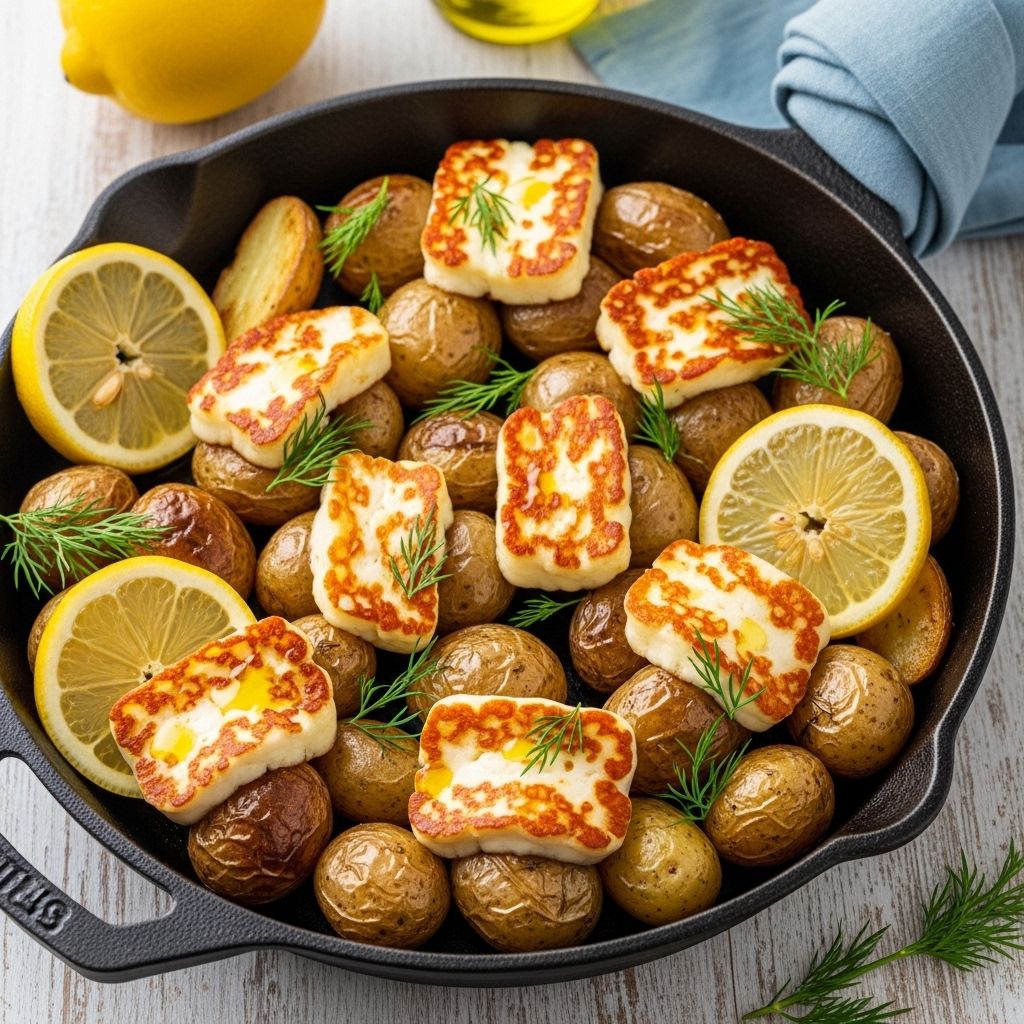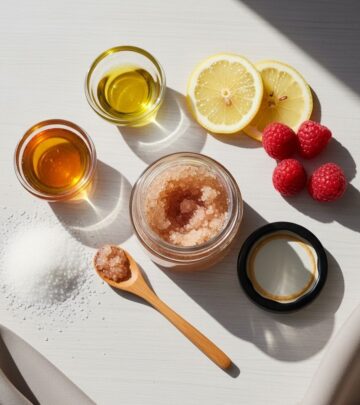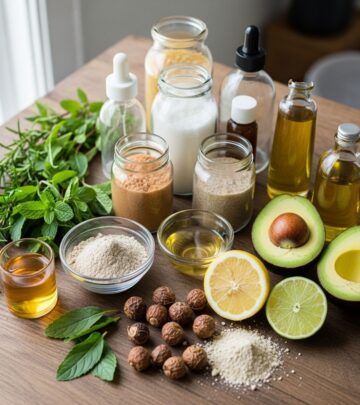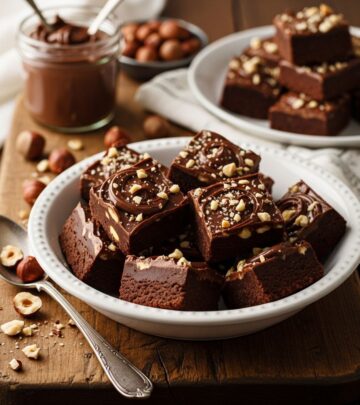Broiled Lemony Potatoes with Halloumi: A Flavorful Mediterranean Feast
Crisp spuds and golden cheese are elevated by bright lemon and herbs for effortless flavor.

Broiled Lemony Potatoes with Halloumi: A Mediterranean Fusion
If you’re seeking a dish that combines crisp potatoes, citrus brightness, and the distinctive, salty chew of halloumi cheese, this recipe delivers a memorable Mediterranean experience. With roots in classic Greek and Cypriot cuisine,
broiled lemony potatoes with halloumi
bring together bold flavors and satisfying textures in a straightforward, adaptable dish, perfect as a hearty side or the centerpiece of a meal.Why This Recipe Stands Out
- **Perfect flavor balance:** Tangy lemon, herb-infused potatoes, and savory halloumi.
- **Textural contrast:** Soft, fluffy potatoes; crispy, caramelized exteriors; gooey, golden halloumi.
- **Minimal effort for maximum results:** Most prep is hands-off, making this ideal for gatherings or weeknight meals.
- **Adaptable:** Easily customized with herbs, spices, and accompaniments to suit your preferences.
Ingredients: Freshness and Quality Make All the Difference
The best results come from selecting high-quality, fresh ingredients. The ingredient list is straightforward yet impactful, drawing from Mediterranean staples:
- Potatoes: Waxy varieties like Yukon Gold, Desiree, or small new potatoes provide the perfect balance of tenderness and hold their structure during broiling.
- Lemons: Use both juice and zest. Fresh, vibrant lemons impart aromatic oils and tangy brightness.
- Halloumi cheese: Halloumi’s unique briny flavor and ability to brown without melting makes it ideal for broiling and baking.
- Olive oil: Choose a robust, fruity extra-virgin olive oil for its flavor and ability to encourage browning.
- Herbs: Oregano, thyme, rosemary, or fresh parsley add aromatic complexity and color.
- Garlic: Pickled or fresh garlic delivers subtle, mellow pungency perfect for the dish.
- Spices (optional): Fennel seeds, chili flakes, and black pepper enhance depth and warmth.
- Salsa garnish (optional): A fresh herb and nut salsa elevates the final dish and adds a hint of crunch.
Preparation: Step-by-Step Method
1. Prepping the Potatoes
- Wash and scrub the potatoes thoroughly—no need to peel unless desired.
- Prick each potato several times with a fork. This step helps the flavor soak in and ensures even cooking.
- If using larger potatoes, cut into thick wedges or chunky pieces (approximately 3 cm or 1.2 in) to maintain texture and prevent overcooking.
2. Marinating for Maximum Flavor
Marinating is essential for infusing the potatoes with tangy, herbal notes. Combine the following in a large mixing bowl:
- Lemon juice and zest (or include lemon skins)
- Olive oil
- Seeded or Dijon mustard
- Maple syrup or honey (for subtle sweetness)
- Dried herbs (oregano, thyme, rosemary, sage)
- Seasoning: salt, black pepper, chili flakes
- Water (or vegetable/chicken broth for richer flavor)
Coat the potatoes thoroughly in the marinade, ensuring every piece is slick with oil and seasoning. Add lemon skins to the mix for extra aroma.
3. Baking and Broiling for Perfect Texture
Layer the potatoes and aromatics in a single layer on a rimmed baking sheet. Pour over any remaining marinade.
- First roast: Bake at 200°C (400°F) for around 30 minutes. The potatoes should start softening and absorbing the flavorful liquid.
- Testing doneness: Pierce the largest potato with a knife. If easily pierced, they’re ready for the next step.
- Turning and basting: Carefully turn potatoes and baste with the marinade from the sheet. This ensures even browning and flavor distribution.
4. Adding Halloumi: The Game-Changer
Drain and dice halloumi into generous cubes (about 1.5–2 cm). Tuck them among the potatoes, ensuring each piece contacts the marinade for enhanced flavor.
- Return to oven: Bake or broil for 15–25 minutes, or until the halloumi is golden-brown, caramelized, and just starting to ooze.
- Final broil: For crispier results, finish under the broiler for 2–4 minutes, watching closely to prevent burning.
5. Herb-Nut Salsa: Freshness and Texture
While potatoes and halloumi finish, prepare a vibrant salsa:
- Finely chop fresh parsley (or your favorite tender herb).
- Combine with toasted walnuts (or substitute almonds, pistachios), chopped for crunch.
- Optionally add hemp seeds for added nutrition and nutty depth.
- Toss with a drizzle of olive oil, extra lemon juice, and a spoonful of cooking liquid from the potatoes.
Spoon salsa liberally atop the finished potatoes and halloumi for a burst of color and fresh flavor.
Ingredient Notes and Variations
| Ingredient | Purpose | Substitutions |
|---|---|---|
| Potatoes | Structure, starchiness | Sweet potatoes, yams |
| Halloumi | Salty, creamy, non-melting cheese | Paneer, feta (crumbled late), grilled tofu |
| Lemon | Acidity, aromatics | Lime, orange zest |
| Olive oil | Moisture, browning | Avocado oil, sunflower oil |
Flavor Additions
- Swap oregano for dill or basil for a unique herbal profile.
- Add capers, kalamata olives, or pickled onions for a briny Mediterranean punch.
- Top with crumbled feta or fresh goat cheese for extra richness.
- Finish with fresh arugula, spinach, or baby kale tossed in vinaigrette.
Serving Suggestions and Presentation
This dish shines as both a side and a main, easily paired with grilled meats, fish, or assorted Mediterranean salads. For an eye-catching presentation, serve on a large platter, scattered with herb salsa, lemon wedges, and a sprinkle of chili flakes.
- **Pair with:** Roasted chicken, lamb, or fish.
- **Vegetarian meal:** Accompany with roasted vegetables, chickpea salad, or a Greek-inspired bean stew.
- **Brunch option:** Top with a soft-boiled egg, serve with crusty sourdough bread.
- **Picnic or potluck:** Serve at room temperature; leftovers remain flavorful and satisfying.
Expert Tips for Success
- Pricking potatoes allows the marinade to seep in, enhancing flavor and ensuring even cooking.
- Take time massaging the marinade onto potatoes—this promotes uniform browning and flavor absorption.
- Using both lemon juice and skins maximizes citrus intensity.
- Basting halfway through roasting elevates both texture and taste.
- Halloumi should be added towards the end to prevent drying out or burning.
- For extra crispy edges, finish under the broiler for a few minutes with close monitoring.
Frequently Asked Questions (FAQ)
Q: Can I make this dish ahead of time?
A: Yes, the potatoes and halloumi can be fully roasted and stored in the refrigerator for up to 2 days. Reheat in the oven for best texture, adding herb salsa just before serving.
Q: Is this recipe suitable for vegans?
A: Halloumi is a dairy-based cheese; for a vegan version, substitute with grilled firm tofu, vegan halloumi-style cheese, or omit and rely on the salsa and potatoes.
Q: What other cheeses work for broiling?
A: Paneer is a good substitute due to its high melting point. Feta can be added after broiling—do not broil feta as it melts quickly.
Q: How do I choose the best halloumi?
A: Opt for authentic Cyprus halloumi if available. Ensure it’s labeled vegetarian if avoiding animal rennet, and check for minimal additives.
Q: Can I freeze leftovers?
A: Potatoes freeze reasonably well, but halloumi tends to change in texture. For best results, store leftovers in the fridge and consume within a few days.
Nutrition and Dietary Notes
- **Vegetarian:** Ensure halloumi is labeled vegetarian (check for absence of animal rennet).
- **Low-FODMAP option:** Substitute pickled garlic for raw and choose low-FODMAP potatoes.
- **Nut-free adaptation:** Omit walnuts from salsa or substitute with toasted sunflower seeds.
- Can be gluten-free when made with appropriate sides and condiments.
Origins and Cultural Context
Lemony roasted potatoes are a classic in Greek tavernas; halloumi is the pride of Cypriot cheese-making, coveted for its firm texture and resilience to heat. The fusion in this dish channels the spirit of both countries, celebrating simplicity, rustic charm, and full, vibrant flavors. Including herbs and citrus reflects the traditional garden-based cooking of the region, while broiling and baking methods honor communal meals and shared hospitality.
Recipe Summary and Customization Guide
- Hands-on time: 15 minutes
- Total cooking time: 1 hour (including marinating, roasting, and broiling)
- Servings: 5–6 as side, 3–4 as main
- Core techniques: Roasting, broiling, basting, prepping herb salsa
- Key equipment: Rimmed baking sheet, mixing bowl, oven-safe dish, sharp knife
- Flavor keys: Lemon, olive oil, herbs, halloumi, garlic
Frequently Asked Questions (FAQs)
Q: Can I use sweet potatoes or other root vegetables?
A: Yes, sweet potatoes, carrots, or parsnips work well, though cooking times and textures may vary slightly. Monitor roasting to prevent over-softening.
Q: What if I can’t find halloumi?
A: Paneer, pressed ricotta, or even thick slices of grilled tofu can mimic halloumi’s texture, though flavor will differ.
Q: How do I prevent potatoes from sticking?
A: Generously oil both the baking sheet and potatoes. Marble or nonstick pans help, as does periodic turning and basting.
Q: Should I peel the potatoes?
A: No peeling is necessary for small or new potatoes, as skins become crisp and add nutrients, but peel if preferred for aesthetic reasons.
Conclusion: Bringing the Mediterranean to Your Table
Broiled lemony potatoes with halloumi are the essence of Mediterranean home cooking—bright, hearty, and layered with flavor. Whether you serve them as a vibrant side dish, a vegetarian main, or the centerpiece of a casual feast, this dish is an invitation to savor the simple pleasures of excellent ingredients and easy technique. Customize with seasonal herbs, adjust spices to your taste, and elevate everyday potatoes into something truly extraordinary.
References
Read full bio of medha deb












